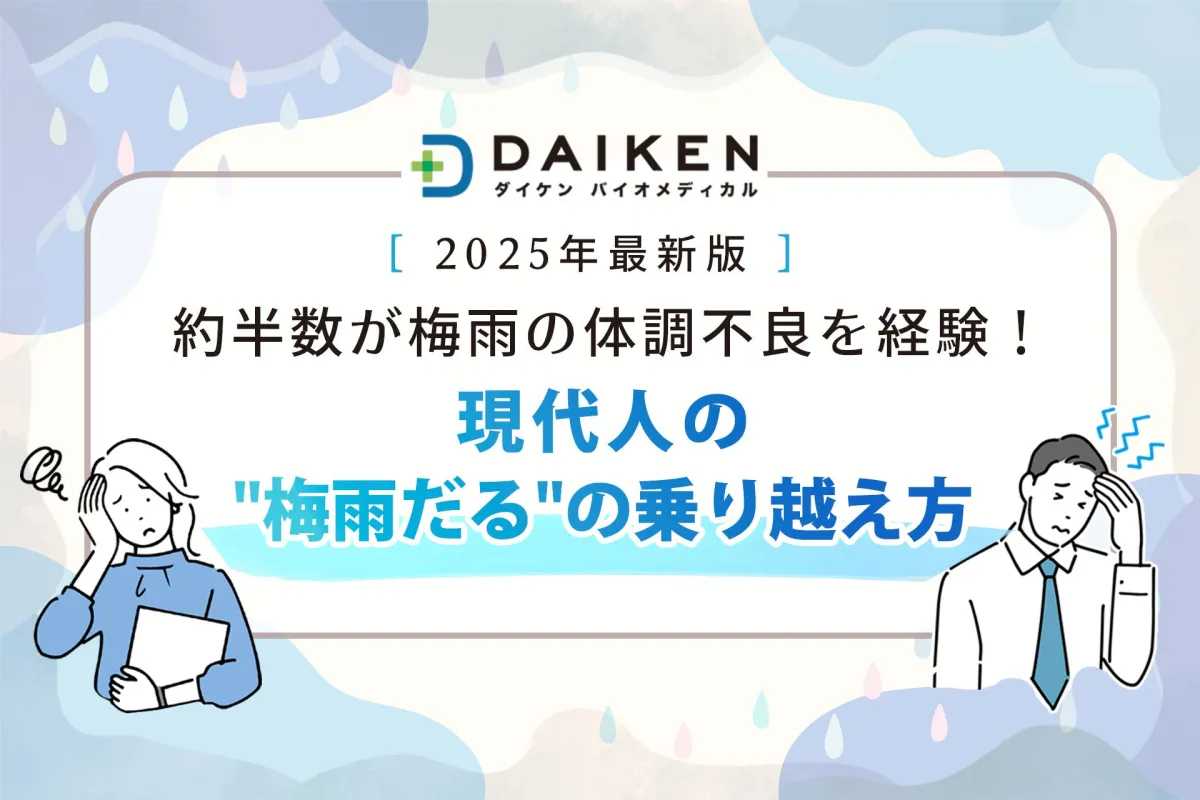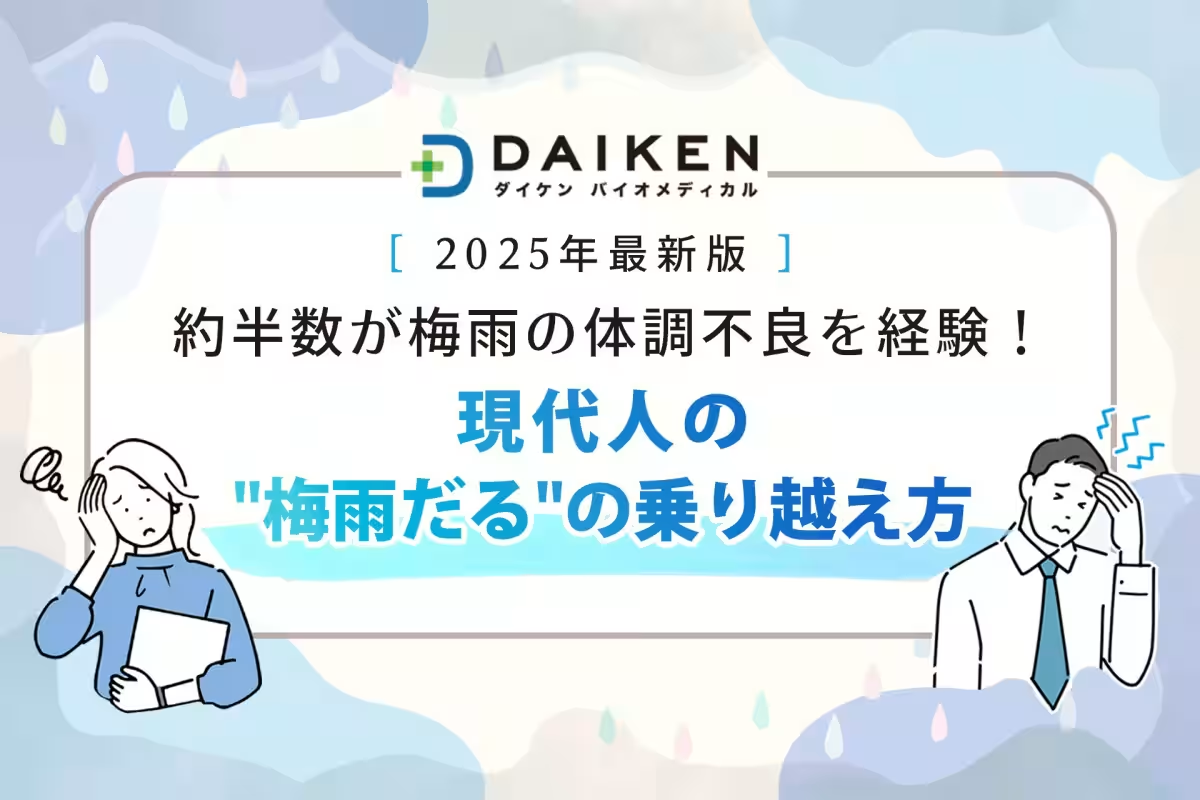

Understanding Rainy Season Fatigue: Survey Reveals Key Factors Impacting Health
Understanding Rainy Season Fatigue: Survey Insights
As the rainy season approaches in Japan, many individuals report a decline in their well-being. A recent survey conducted by Daiken Biomedical Co., Ltd., which specializes in health food manufacturing and sales, uncovered significant insights about the physical and mental challenges people face during this distinct season. The survey was meticulously executed with a two-step process involving responses from 3,000 individuals across Japan, focusing on their experiences concerning health impacts during the rainy season.
Survey Overview
The initial phase of the survey sought to ascertain whether participants had ever felt unwell during the rainy season. Surprisingly, 48% of respondents—equating to approximately 1 in 2 people—acknowledged experiencing some form of distress during this time. Contributing factors such as fluctuations in temperature, humidity, and atmospheric pressure seem to play a vital role in influencing overall health and wellness.
Key Findings
- - 48% of respondents reported feeling unwell during the rainy season. This indicates a widespread acknowledgment of seasonal health challenges.
- - The primary symptoms reported include: lethargy, headaches, and feelings of irritability or low mood, showing a correlation between mental health and the rainy weather.
- - The most cited cause of these issues is atmospheric pressure changes, closely followed by high humidity and temperature variations.
- - Common coping strategies include taking warm baths, eating a balanced diet, and engaging in regular exercise and stretching.
Detailed Insights
A High Incidence of Health Issues
In the survey, when asked about specific symptoms experienced during the rainy season, lethargy topped the list as 65% identified fatigue as a primary concern. Other prevalent symptoms included headaches and mood swings, which often suggest underlying mental health shifts. These findings mirror theories that attribute low mood to decreased sunlight exposure and disruptions in the autonomic nervous system caused by low atmospheric pressure.
Atmospheric Pressure: The Culprit
Among the factors contributing to health issues during the rainy season, changes in atmospheric pressure were overwhelmingly acknowledged by 622 participants. This aligns with the understanding that abrupt shifts in weather can destabilize the autonomic nervous system, highlighting the importance of managing internal health to mitigate such external stresses.
Coping Mechanisms: A Lifestyle Review
What can individuals do to overcome these rainy season woes? The most frequently mentioned strategy was immersing oneself in warm baths, with 337 responses indicating this practice. Furthermore, maintaining a balanced diet, revising daily routines, and engaging in physical activities were notable responses. Many respondents also mentioned the importance of supplementing their diets with health products to ensure they are getting adequate nutrition and support during this challenging season.
Interestingly, there is a segment of the population that has not implemented any coping strategies, perhaps due to busyness or a lack of information. This underscores the critical need for accessible self-care knowledge and practical strategies that people can easily integrate into their lives.
Conclusion
The rainy season brings unique health challenges driven by fluctuating weather conditions. The survey findings reveal that nearly half of those surveyed experience some distress, characterized primarily by fatigue, headaches, and fluctuations in mood. Recognizing that such symptoms are valid during this time empowers individuals to proactively adjust their lifestyles and nutritional intake. Furthermore, utilizing health supplements as a preemptive strategy can help maintain wellness throughout the rainy season, enabling everyone to navigate this period with greater ease.
For further inquiries regarding the survey or health products, please contact Daiken Biomedical Co., Ltd. at [email protected] or visit their official website at Daiken Biomedical.





Topics Health)










【About Using Articles】
You can freely use the title and article content by linking to the page where the article is posted.
※ Images cannot be used.
【About Links】
Links are free to use.